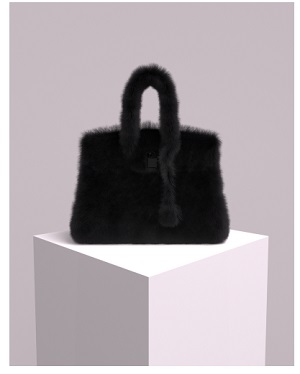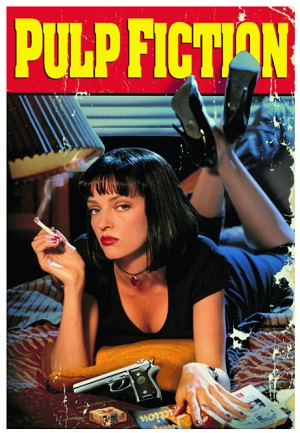It wasn't that long ago that we first wrote about Non-Fungible Tokens ("NFTs"). Now, barely a day goes by without a report on the IP implications of these weird creations. This article discusses some recent developments, but before doing that, a quick...
RECAP
A NFT can be described as a unique digital asset authenticated using blockchain technology. NFTs might comprise digital artwork, photos, videos, GIFs, music, etc and are sold on blockchain-backed marketplaces like OpenSea and Nifty Gateway. People buy NFTs for a variety of reasons (one of which is that they are seen by some as a good investment).
HERMÈS V ROTHSCHILD: BIRKIN
Birkin and MetaBirkins
An interesting article in Business of Fashion reports that fashion house Hermès is suing Mason Rothschild in a New York court for trade mark infringement and dilution. The case relates to Hermès' Birkin trade mark, and more particularly, the fact that Rothschild is marketing digital assets under the name MetaBirkins. According to the article, the case "raises questions about how trade mark protections for real world items will be enforced in the digital realm as commercial activity heats up in the metaverse". In recent months, NFTs depicting fashion items have sold for millions.
Dilution
The article says that the NFT exchange OpenSea removed MetaBirkins after Hermès issued a cease-and-desist letter, yet Rothschild continues to market them. In its court papers, Hermès says that "Rothschild simply rips off Hermès' famous Birkin trade mark by adding the generic prefix 'meta'.... There can be no doubt that this success arises from his continuing and dilutive use of Hermès's famous trademarks."
Just a bit of fun
Rothschild, unsurprisingly, sees it very differently. Rothschild refers to his work as "a playful abstraction of an exciting fashion-culture landmark". Rothschild says that he is "not creating or selling fake Birkin bags... I've made artworks that depict imaginary, fur-covered Birkin bags."

Parallels
Rothschild's reference to "playful abstraction" raises interesting parallels with the use of well-known trade marks on clothing, an issue that South Africans know well through the famous Constitutional Court decision in the Laugh-it-off case. This response from Hermès is particularly interesting:
"Although a digital image connected to a NFT may reflect some artistic creativity, just as a t-shirt or a greeting card may reflect some artistic activity, the title of 'artist' does not confer a licence to use an equivalent to the famous Birkin trademark in a manner calculated to mislead consumers and undermine the ability of the mark to identify Hermès as the unique source of goods sold under the Birkin mark."
Serious harm
Hermès argues that, unless the court intervenes, it could suffer real harm. It claims that MetaBirkins could "ultimately pre-empt Hermès' ability to offer products and services in virtual marketplaces that are uniquely associated with Hermès and meet Hermès' quality standards."
We await further developments with interest.
MIRAMAX V QUENTIN TARANTINO: PULP FICTION
Unseen clips
In another interesting development, the film company Miramax (the film studio behind the movie Pulp Fiction – one of the most influential films of the past 30 years) is suing Quinten Tarantino (the director of the film that starred John Travolta and Samuel L. Jackson as hitmen) for planning to sell seven NFTs of previously unseen clips/scenes from the film. These NFTs will apparently include excerpts from the original hand-written script and exclusive commentary from the writer/director.

According to Miramax, the problem with the above is that it owns "the majority of the rights to the film". Equally vague, Miramax claims that Tarantino assigned "nearly all of his rights to Pulp Fiction" to Miramax in 1993. Miramax argues that "left unchecked, Tarantino's conduct could mislead others into believing Miramax is involved in his venture" It further argues that "this one-off effort devalues the NFT rights to Pulp Fiction, which Miramax intends to maximise through a strategic, comprehensive approach."
ON A HAPPIER NOTE
There is some good news involving NFTs. The British Museum has seemingly embraced them by launching its second NFT art sale (featuring the works of Turner – the rationale is seemingly to recoup some of the revenue it would have made had there not been a pandemic). Meanwhile, a world-famous sportsman who we have discussed before, Giannis Antetokounmpo (a.k.a. the Greek Freak), is also getting involved with NFTs, evidencing that he is as business and marketing adept as he is at shooting hoops.
No doubt, we'll be discussing NFTs for the foreseeable future.
The content of this article is intended to provide a general guide to the subject matter. Specialist advice should be sought about your specific circumstances.



